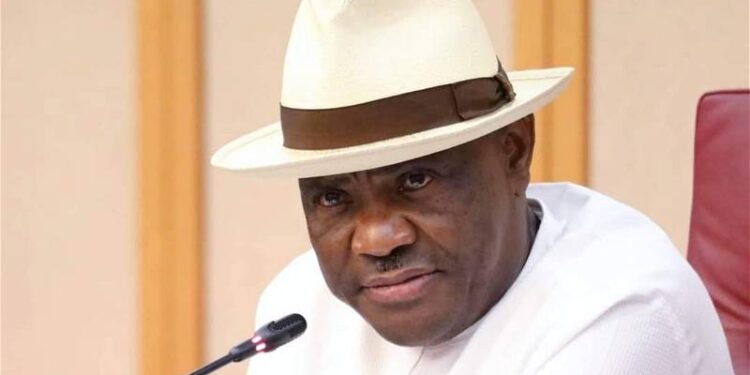The Minister of the Federal Capital Territory (FCT), Mr Nyesom Wike, has given a matching order for the immediate reconstruction of Dogon Gada box culvert in Lokogoma village, Abuja.
Mr Felix Obuah, the Coordinator, Abuja Metropolitan Management Council (AMMC), made this known in Abuja on Tuesday, during the 2024 Flood Risk Assessment and Community Awareness Campaign.
The campaign was organised by the FCT Emergency Management Department in collaboration with emergency management stakeholders.
The News Agency of Nigeria (NAN) reports that the culvert was on the access road that linked over 3,000 residents of Lokogoma village, popularly known as Dogon Gada community to Ring Road II.
The FCT Emergency Management Department had on April 7, barricaded the box culvert, which had collapsed, to avert loss of lives.
The community loses their loved ones to flooding while trying to cross the culvert during the rainy season, due to its low elevation and prone to flooding.
Obuah said that the construction of the bridge would commence immediately after the engineering department concluded their structural designs and other technical requirements.
He assured the community that FEMD was taking necessary action to ensure that no life was lost to flooding in FCT throughout the 2024 rainy season.
“The minister has given a matching order that the construction of the bride should commence with immediate effect.
“As I speak to you, any moment from now work will commence. The engineering process has begun already for the speedy construction of the bridge,” he said.
The coordinator pointed out that human action has an impact on the environment, exposing it to varying degrees of flood risk.
He explained that the exercise was a preparedness and awareness campaign to sensitise residents against actions that would predispose communities to flood.
“I assured FCT residents that with the proactive measure being taken by FEMD and other stakeholders, no life will be lost in 2024 to flooding in 2024.
“We must, therefore, continue to strengthen our collaboration towards flood prevention and mitigation,” Obuah said.
Earlier, acting Director-General, FEMD, Mr Mohammed Sabo, said that the flood risk assessment and awareness campaign was part of strategies to strengthen disaster risk reduction.
Sabo said that other flood prone communities would also be sensitised to mobilise residents to take proactive steps towards preventing loss of lives to flood.
He added that the flood risk assessment would enable FEMD to assess interventions that worked and areas that need additional interventions to prevent flooding.
Also, Mr Florence Wenegieme, Director, Forecasting, Response and Mitigation, said that the bridge had taken many lives over the years during the rainy season.
Wenegiene explained that the people were killed by the flood because they tried to cross the flooded bridge against warnings by FEMD and local divers stationed at the bridge.
Mr Christopher Maikalangu, Chairman, Abuja Municipal Area Council, thanked Wike for the prompt intervention to prevent more people from dying from flooding along the bridge.
He said that the distance from the community to Ring Road II was 800 metres, but the residents had to travel five to six kilometres through alternative routes to get to the ring road.
The leader of the community, Mr Irimiya Kanpani, who could not hide his excitement over the minister’s approval for the recommendation of the collapsed bridge described it as a huge relief,
“Now I can go to sleep knowing that the minister will fulfil his promise and my people will be safe. All I can say is thank you,” he said. (NAN)











